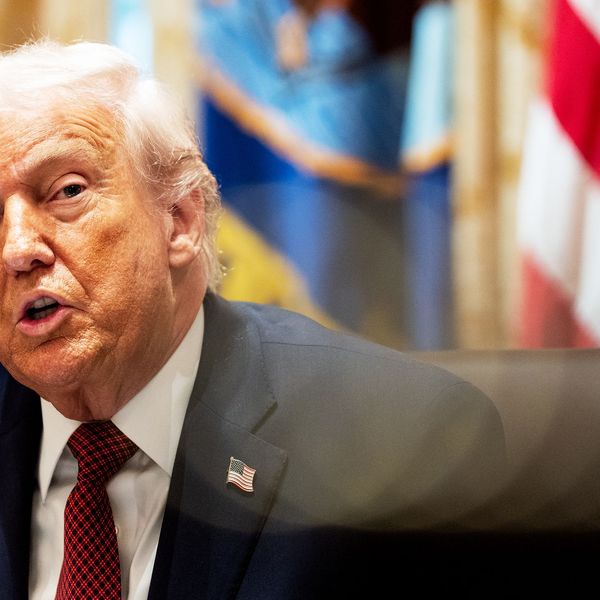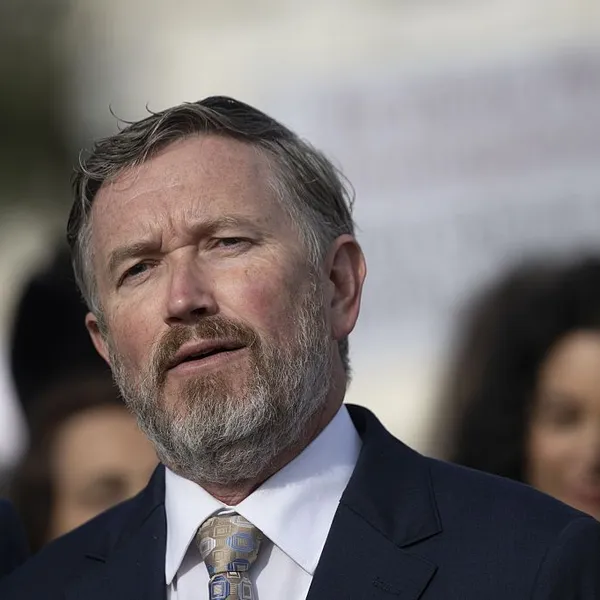Ahead of the unveiling of his "Buy American" initiative to push even more arms exports into foreign countries, President Donald Trump has begun acting as a weapons salesman, directly appealing to foreign leaders to buy U.S.-made military equipment.
The initiative will loosen restrictions on exports of weapons including drones, firearms, jets, and ships, ensuring that deals are reached more quickly--potentially at the expense of human rights, say critics, who argue that the more weapons flow through the international arms trade, the more likely they are to fuel violence in the Middle East and elsewhere.
According to Reuters, the president spoke with the emir of Kuwait earlier this year in order to push through a stalled $10 billion deal to sell fighter jets to the country.
"With this Oval Office intervention, the details of which have not been previously reported, Trump did something unusual for a U.S. president--he personally helped to close a major arms deal," Reuters reported. "In private phone calls and public appearances with world leaders, Trump has gone further than any of his predecessors to act as a salesman for the U.S. defense industry, analysts said."
Trump will roll out his "Buy American" plan on Thursday. The administration has portrayed the U.S. weapons trade as lagging--even though the country is the world's largest arms exporter, selling $42 billion in military equipment last year and regularly selling twice as much in arms as its biggest competitor, Russia.
One Trump official claimed in Reuters' report that the U.S. is "getting outplayed" by countries that send their government officials to international arms shows. Under "Buy American," Trump's Cabinet members will be expected to attend such events to act as "closers."
Last year, the president also finalized a deal--initiated by the Obama administration--with Saudi Arabia, selling $100 billion in weapons including $7 billion in precision-guided missiles. The deal went through even as critics raised alarm that the munitions would be used in the Saudi-led assault on Yemen, where thousands of civilians have been killed according to U.N. estimates.
"This administration has demonstrated from the very beginning that human rights have taken a back seat to economic concerns," Rachel Stohl, director of the conventional defense program at the Stimson Center, a nonpartisan think tank, told Reuters earlier this year. "And the short-sightedness of a new arms export policy could have serious long-term implications."



